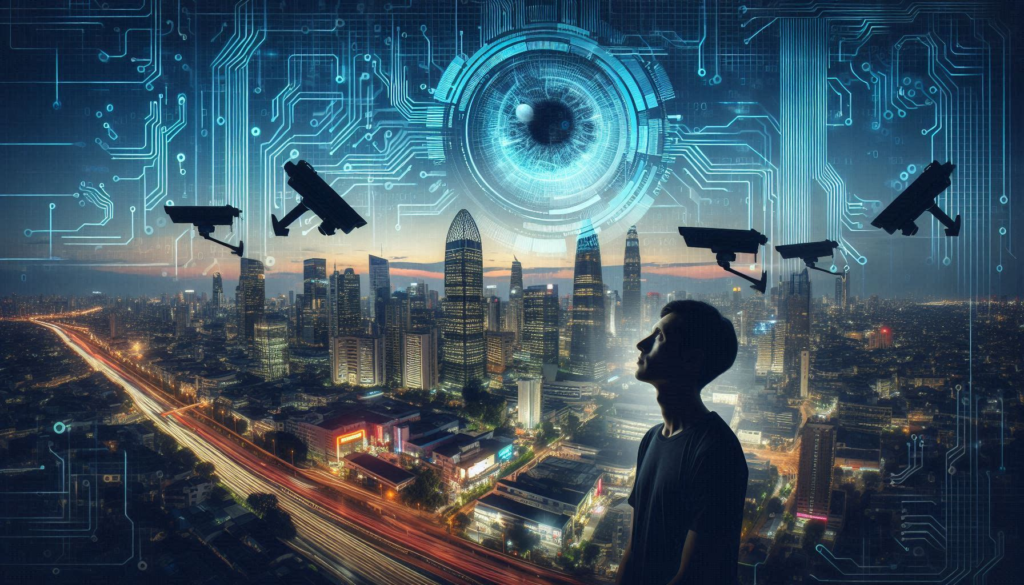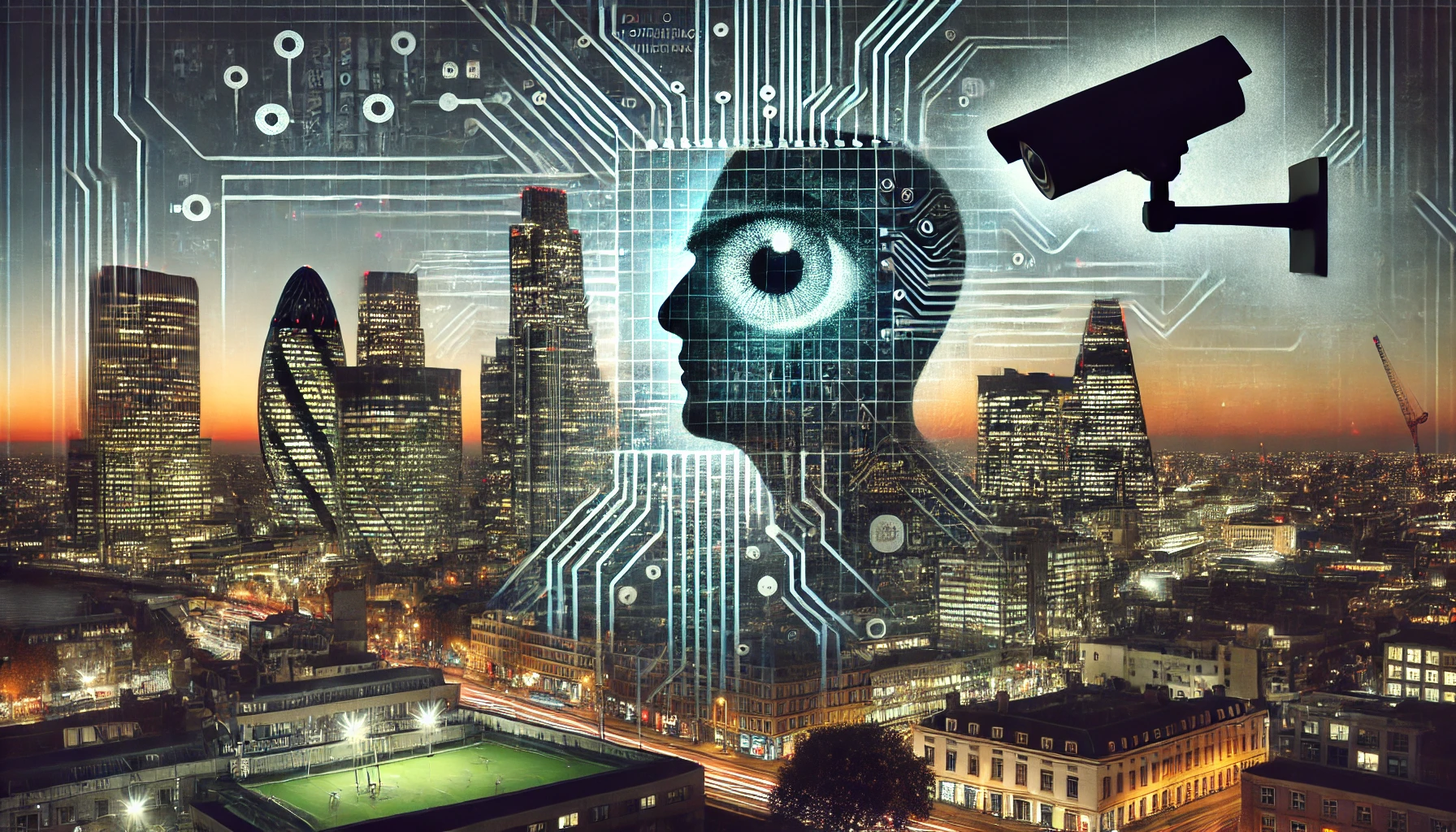Table of Contents
Introduction
AI Surveillance and privacy are contentious concerns in the digital era. The government around the world are growing increasingly dependent on superior AI technology to monitor the people they govern. While such capabilities are frequently justified in terms of national security and safety for the public, they present serious issues about privacy, freedoms of speech, and the possibility of abuse. This article investigates the emergence of AI spying, its effects for privacy, legal and ethical issues, and what may be done to limit its risks.
What exactly is AI Surveillance?
AI monitoring is the application of artificial intelligence to monitor, track, and examine the behavior of individuals or organizations. Traditional surveillance methods are improved by AI technology, which allows for huge real-time data analysis. The systems can collect information from a number of sources, such as cameras, mobile phones, social media platforms, and publicly accessible databases, to create an accurate picture of a person’s behaviors and relationships.
AI methods of surveillance depend on algorithms for facial identification, recognition of voices, and behavior predictions. These technologies have the ability of forecasting possible risks, analyzing suspicious activity, and keeping track of compliance with regulations and laws. But the capacity for artificial intelligence to understand such massive amounts of data creates worries about invasions of privacy and overreach by authorities.
Exactly how Governments Use AI Surveillance
Governments during the world are using AI surveillance technologies for a variety of purposes, which include law enforcement and national security. Here are some of the significant examples:
- Face Recognition Technologies: AI-powered systems that recognize faces are frequently used to identify people in public places. These tools compare live video footage to a database of photos, helping law enforcement to immediately pinpoint individuals of interest. While important for public safety, some suggest that these systems are frequently inaccurate, particularly when detecting individuals of color, and can result in unjustified detentions.
- Behavior Analysis: AI systems can identify behavioral patterns and predicted actions based on previous behavior. Predictive law enforcement, for example, utilizes artificial intelligence to predict where incidents are likely to occur, allowing police to act active rather than reactive. But this predictive intelligence frequently increases pre-existing biases, resulting in excessive law enforcement in communities with limited resources.
- Large-scale data collection: Governments acquire large amounts of personal information from a variety of sources, including phone conversations, emails, and online activities. AI examines this data to identify unexpected patterns that may suggest potential security issues. While data collecting is critical for national security, critics claim that it is frequently done without the public’s awareness or agreement, infringing on people’ private rights.

The Effects of AI Surveillance on Privacy
Governments’ use of AI surveillance capabilities has serious ramifications for individual privacy. These technologies have acquired, analyzed, and stored an unprecedented amount of data. The sense of personal privacy is destroyed when every movement, communication, and transaction may be tracked.
- Mass surveillance: Mass monitoring is employed as a means of control in countries with authoritarian governments. The use of artificial intelligence enables governments to monitor their populations in actual time, repress dissent, and punishment individuals who question authority. In China, for example, AI-powered cameras that recognize faces are used for tracking the activities of the Uighur Muslim population, a minority group who are subjected to powerful surveillance and persecution.
- Increased Risk of Abuse: AI surveillance can also be used for political reasons. In democratic countries, the use of these techniques without proper control might result in the deterioration of civil liberties. Governments can utilize AI monitoring to gather information on political opponents, activists, or journalists, jeopardizing fundamental democratic principles such as free speech and the press.
- Data Security Risks: The massive amounts of sensitive data gathered through AI surveillance are frequently housed in central databases, which are prime targets for hacks. A breach in these databases could reveal personal information, allowing for identity theft, financial fraud, and other sorts of exploitation.
Legal and ethical problems with AI surveillance
The legal and ethical bases guiding AI surveillance are still developing. As governments utilize these tools at an increasing rate, questions about their legality and ethical effects have surfaced.
- Insufficient regulatory structures: Many countries do not have adequate legislation governing the use of AI surveillance. While laws regarding data protection, like as the GDPR (General Data Protection Regulation) in the European Union, provides some safeguards, they are frequently insufficient to handle the particular challenges set by AI. Governments can take advantage of this regulatory void, deploying AI spying abilities with no accountability or transparency.
- Bias and discrimination: AI systems are only as good as the data they’re educated with. If the training data contains biases, the AI will repeat them in its operations. In terms of surveillance, this means that particular groups—such as racial minorities, women, and low-income people—are more likely to be targeted or mistaken.
- Transparency and Accountability: One of the most common objections leveled toward AI spying is a lack of openness. Governments frequently adopt these systems in secrecy, with no public input or monitoring. This raises ethical considerations regarding who has access to the acquired data, how it is used, and what protections exist to prevent misuse.
Global AI Surveillance Trends
- China AI Surveillance Network: China has developed one of the world’s most complete monitoring systems, implementing AI technologies to watch its citizens. Facial recognition recording devices, social credit networks, and large-scale data gathering all form part of this network, that allow government agencies to monitor individuals at any time and reward or punish behavior accordingly.
- AI Surveillance in Western Democracies: In countries like as the United States and the United Kingdom, artificial intelligence surveillance is mostly utilized for counterterrorism and law enforcement. While these governments emphasize the importance of such instruments in ensuring national security, there are rising worries about the balance of safety and individual liberty.
Ethical Challenges in AI Surveillance
The ethical quandaries presented by AI spying extend beyond privacy considerations. One of the most significant difficulties is the power imbalance it causes between the state and its population. Governments control all data, leaving citizens with few rights to know how it is utilized.
AI algorithms have bias. As previously stated, AI systems are subject to bias, particularly in areas such as facial recognition. Numerous studies have found that these technologies are less accurate in identifying people of race, perhaps leading to unjust treatment by law enforcement. When citizens believe they are continually being observed, they lose trust in government institutions. People may become more careful in their actions, believing that they will be unfairly targeted by surveillance technologies.
AI Surveillance and Corporate Collaboration
Private firms also have a part in AI spying, which is troubling. Many governments rely on technology corporations to build and maintain their monitoring systems. Companies like Google, Amazon, and others and Palantir are heavily invested in developing powered by artificial intelligence applications for law enforcement and intelligence organizations.
This cooperation presents various ethical concerns. When private firms store vast volumes of sensitive data, who is responsible if it is misused? How can the public believe that these firms will prioritize privacy over profit? These concerns underline the necessity for strict restrictions governing corporate engagement in AI spying.
Legal Challenges to AI Surveillance
The growth of AI spying has resulted in various legal problems. Privacy advocates say that AI spying violates constitutional prohibitions on unreasonable searches and seizures, particularly when individuals are observed without their knowledge or agreement.
The General Data Protection Regulation (GDPR) in the European Union sets solid limits for data collection and utilization, but it fails to keep up with the speed of technological progress. In the United States, legal fights have started as courts attempt to define the boundaries of government monitoring in the age of technology.

The Next Generation Of AI Surveillance
As artificial intelligence technology develops, its application in government monitoring will only increase. While there is no questioning sure AI can improve public safety as national security, it must be done to ensure that such technologies are employed responsibly and openly. Citizen knowledge and involvement will play a major part in describing the future of AI monitoring. To prevent the abuse of these powerful abilities, citizens must advocate for tighter regulations on privacy, improved openness, and accountability.
conclusion
The connection between governments and citizens is changing as a result of the increase of AI spying. The security and efficiency benefits of these technologies are indisputable, but they also pose a danger to the fundamental privacy and individual liberty rights that democratic societies are based on. Citizens must be on guard and insist that people in positions of authority act transparently, responsibly, and ethically as AI surveillance grows in scope.
FAQ’S
What’s the meaning of AI monitoring?
AI surveillance involves the use of artificial intelligence to track individual behaviors, activities, and movement using data from recording devices, telephones, and various other digital devices.
In what ways is AI used for government surveillance?
AI is utilized for recognition of faces, behavior analysis, mass gathering of information, and predictive law enforcement, allowing governments to track citizens and predict risks.
What exactly are the risks of utilizing AI for surveillance?
AI surveillance puts at risk privacy, civil liberties, and data security, particularly if used without openness or accountability.
Is AI surveillance legal?
The legality of artificial intelligence spying differs by country. While some countries have rules governing data collecting and privacy, others lack monitoring, presenting ethical and legal difficulties.
Can AI surveillance be halted?
AI surveillance can be regulated through laws and public pressure, but given its expanding importance in security and enforcement, it may be impossible to completely eliminate.
How can we limit AI surveillance?
Governments can improve openness and accountability, while citizens can advocate for stricter privacy legislation and ethical principles.
